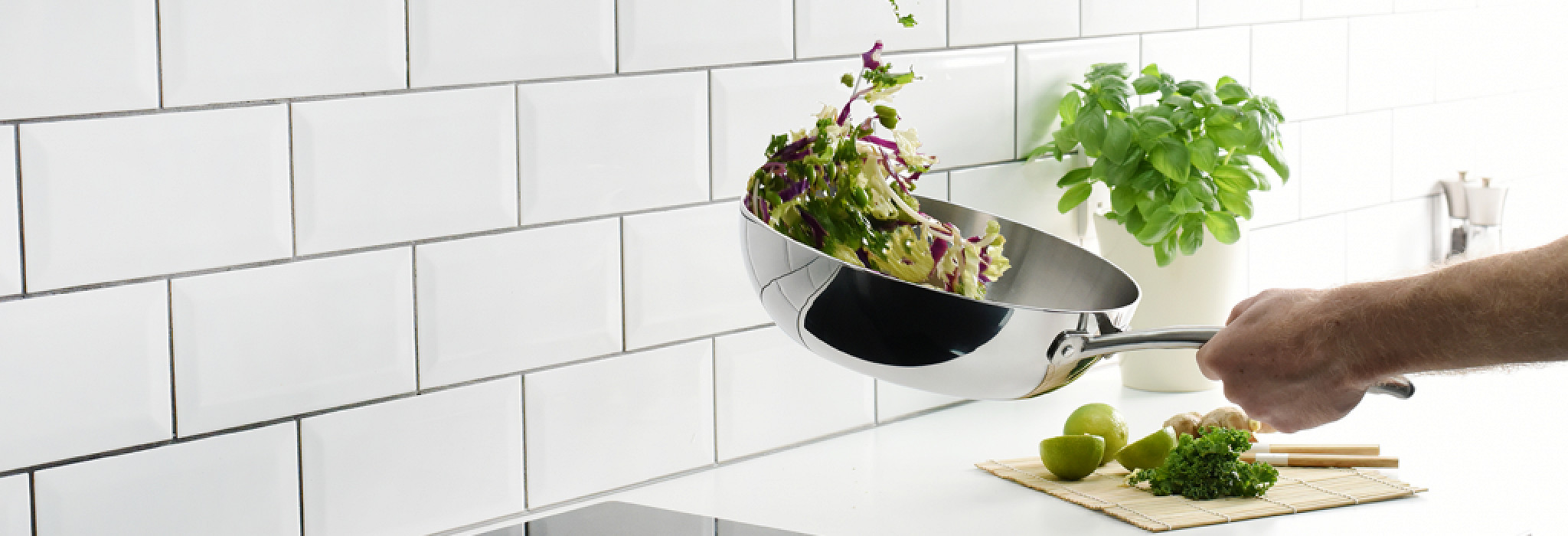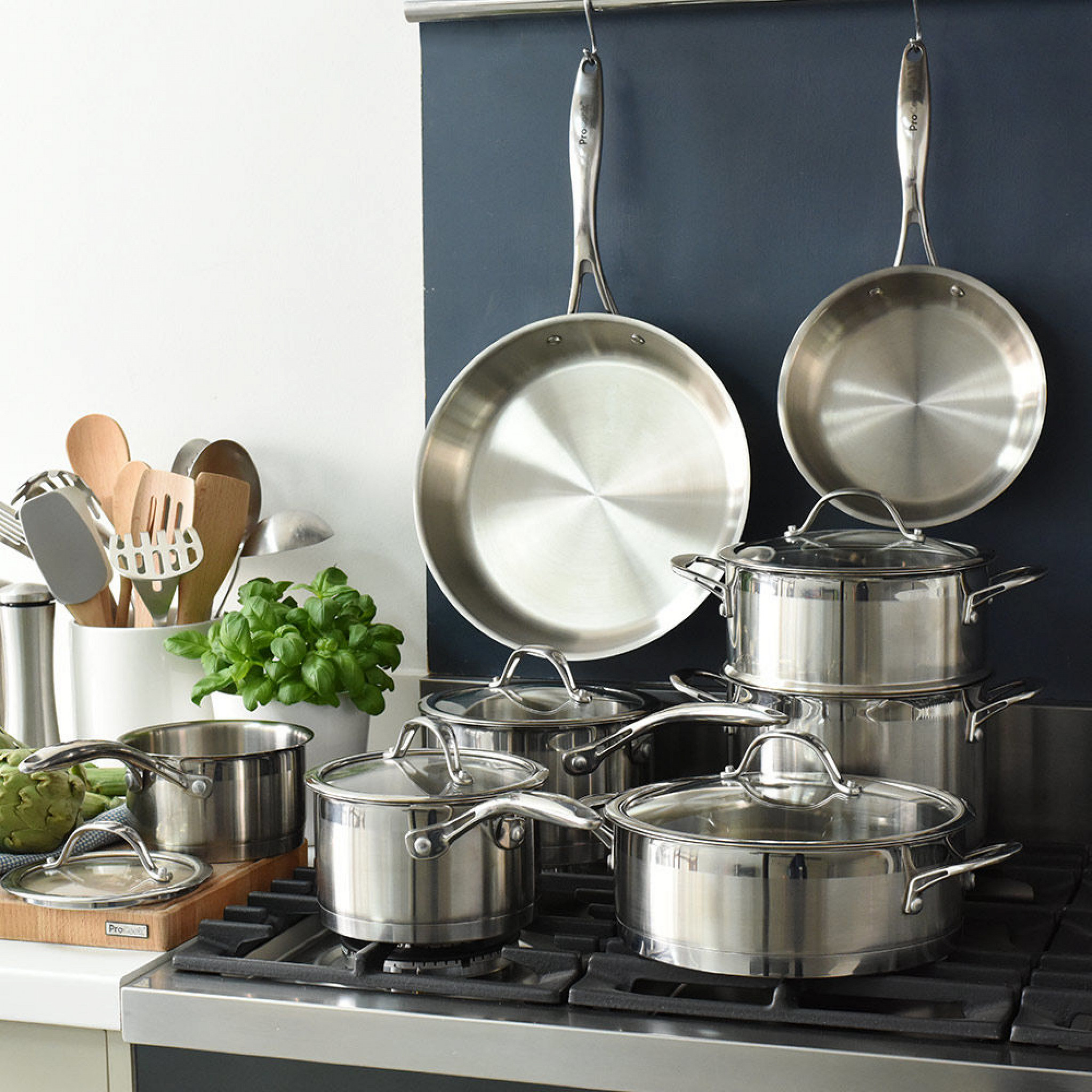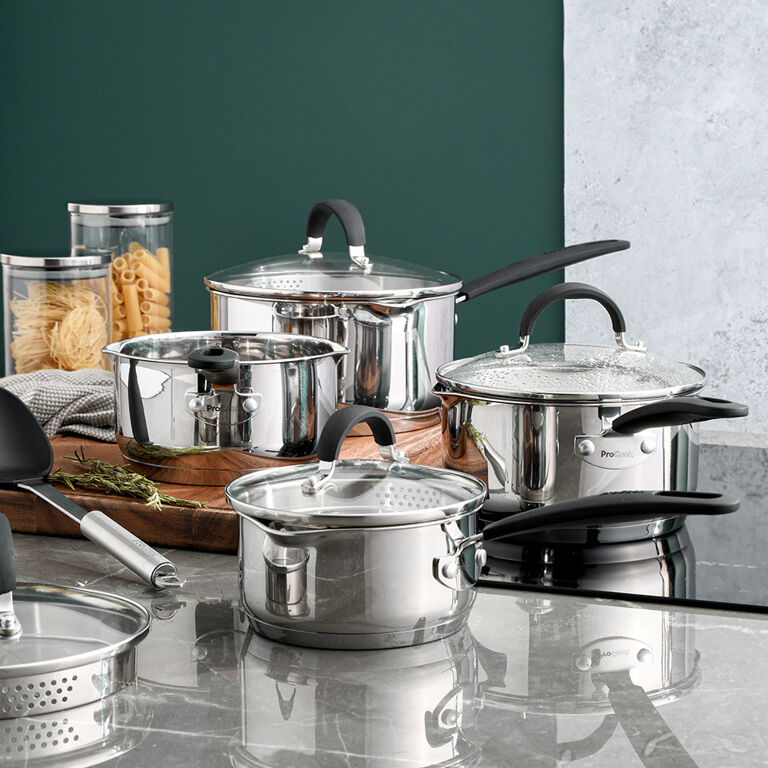ProCook Help Hub
The latest inspiration and advise from the experts at ProCook
A true kitchen superstar, uncoated cookware can bring you brilliant cooking results in professional and domestic kitchens.
Favoured by professional chefs and home cooks, uncoated pans build heat quickly and spreads evenly for easy searing, browning and caramelising of veggies, fish and meats.
Uncoated cookware is fantastic for achieving well-browned and crispy textures as well as day-to-day cooking like frying and simmering.
Unlike non-stick pans that have a coating on them, uncoated cookware is exactly as the name suggests - free from any form of coating.
While there is nothing unsafe when cooking with uncoated cookware, you should refrain from cooking highly acidic foods in your uncoated frying pan and saucepan as this can cause leaching.
Leaching simply means that a small amount of metal could leach into your food during the cooking process. If your pan does leach, it is usually a harmless trace amount.
Are Uncoated Pans Safe?
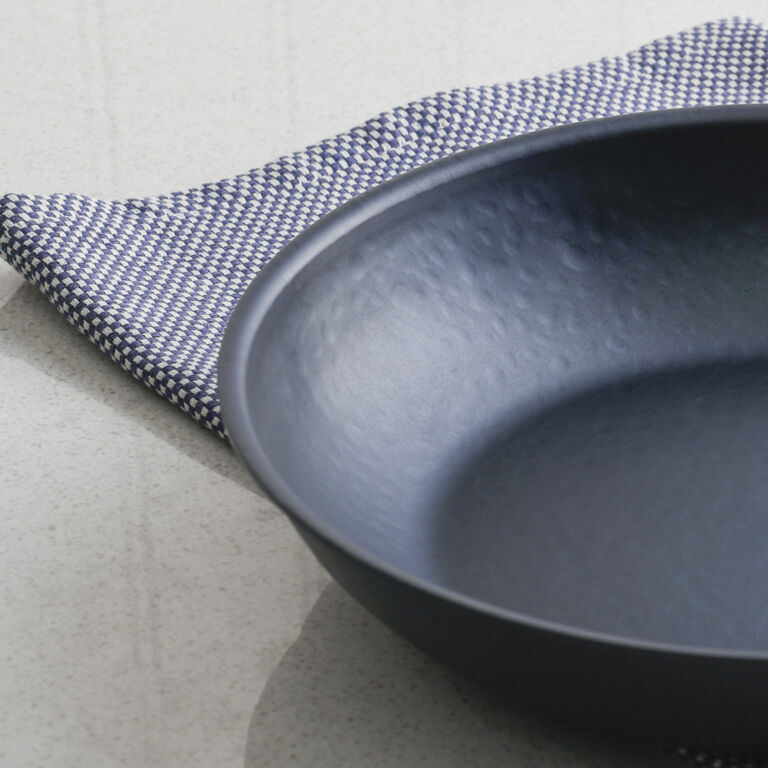
How to Use Uncoated Pans
Preheat ahead of time
To stop food from sticking and burning, we recommend preheating your uncoated cookware to ensure the pan is hot enough for oil to be added. You can do this by placing the empty pan over a medium high heat and dropping a small amount of water inside. When the water starts ‘jumping’ and has a ‘shimmering’ consistency, you can add oil to the pan. We also recommend using an oil with a high smoke point, such as refined olive oil, peanut oil or corn oil.
ProTip:
Avoid making your pan too hot as this can be dangerous. You only want to warm the pan ever so slightly.
Cooking with uncoated pans
Although uncoated pans do not have a non-stick coating, they can become naturally non-stick if prepped properly.
We have a variety of carbon steel pans which are uncoated. Over time, your carbon steel pan will build up a dark patina, and the more you use and season the pan, the more it will build up its non-stick properties. The appearance of the carbon steel pan will change, but its performance will excel in use.
For stainless steel uncoated pans, we do not recommend seasoning them. Instead, simply unpackage and wash before use. The natural fats and oil used while cooking will contribute to a natural non-stick layer to your pans.

Natural patina development for our uncoated carbon steel pans, Blue Steel.
How to Care for Stainless Steel Pans
We do not recommend washing your pots and pans in the dishwasher, especially for uncoated carbon steel where the natural non-stick is necessary. A dishwasher’s high intensity cleaning process can strip away the pan's seasoning layer. Instead, we recommend washing with warm water, avoiding abrasive sponges, and drying thoroughly to avoid rust and water marks.

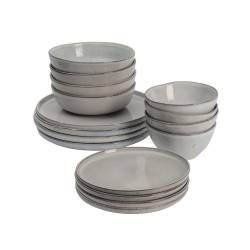
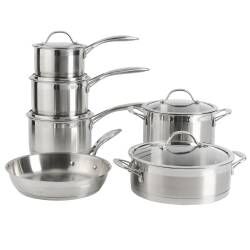
 Electricals
Electricals
 Coffee
Coffee
 Mixers and Blenders
Mixers and Blenders
 Kettles and Toasters
Kettles and Toasters
 Cooking
Cooking
 Small Appliances
Small Appliances
 Cookware & Bakeware
Cookware & Bakeware
 Pots and Pans
Pots and Pans
 Speciality Cookware
Speciality Cookware
 Baking
Baking
 Roasting
Roasting
 Knives
Knives
 Knife Sets
Knife Sets
 Single Knives
Single Knives
 Knife Accessories
Knife Accessories
 Tableware
Tableware
 Single Items
Single Items
 Serveware
Serveware
 Table Accessories
Table Accessories
 Outdoor Dining
Outdoor Dining
 Drinkware
Drinkware
 Hot Drinkware
Hot Drinkware
 Cafetieres and Teapots
Cafetieres and Teapots
 Drink Accessories
Drink Accessories
 Accessories
Accessories
 Kitchen Utensils
Kitchen Utensils
 Tools and Gadgets
Tools and Gadgets
 Storage
Storage
 Cleaning
Cleaning
 Summer desserts and baking
Summer desserts and baking
 Offers
Offers
 Gifting
Gifting
